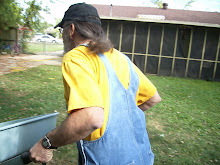For the word of God is living and active, sharper than any two-edged sword, piercing to the division of soul and spirit, of joints and marrow, and discerning the thoughts and intentions of the heart.-Hebrews 4:12
Matthew 7:1 ("Judge not, that you be not judged.") may be the favorite Bible quotation of our day.
"Who am I to judge?" is the question on many lips. A kinder, gentler way, perhaps, of saying "I don't want to get involved."
And "Love your neighbor as yourself." What does that entail?
I would avoid danger. Should I warn my neighbor of the same approaching danger?
So there is this:
https://www.monergism.com/blog/nashville-statement-and-acting-love-toward-our-neighbor
John Hendryx' comment on article 10 of the Nashville Statement.
You may read that statement here (and sign it as the Holy Spirit prompts you):
https://cbmw.org/nashville-statement/
The quote from Ezekiel 3:18 in Hendryx' comment speaks to the Christian person's conscience, as do Paul's words in Romans 1:32.
This is personal, you see, as I have not just a neighbor but a dear loved one with whom I have been having this conversation.
My sin is ever before me, as David reminds us, and at times seems so overwhelming and all-pervasive that I too am tempted to ask: "Who am I to judge?"
But it has been pointed out (though not in the Bible I think) that "sometimes words have two meanings."
So then "to judge" can be to pronounce sentence or condemn. Not my job but God's only.
But "to judge" can also be to discern, to make a distinction. I look at the sky in the morning and may decide to carry an umbrella.
I am bound to speak as one who has been and is continually the recipient of God's love and mercy.
Turn back, turn back.
Pray for my faith, that it not falter and that I not grow weary in my entreaties before God.
Subscribe to:
Post Comments (Atom)

No comments:
Post a Comment